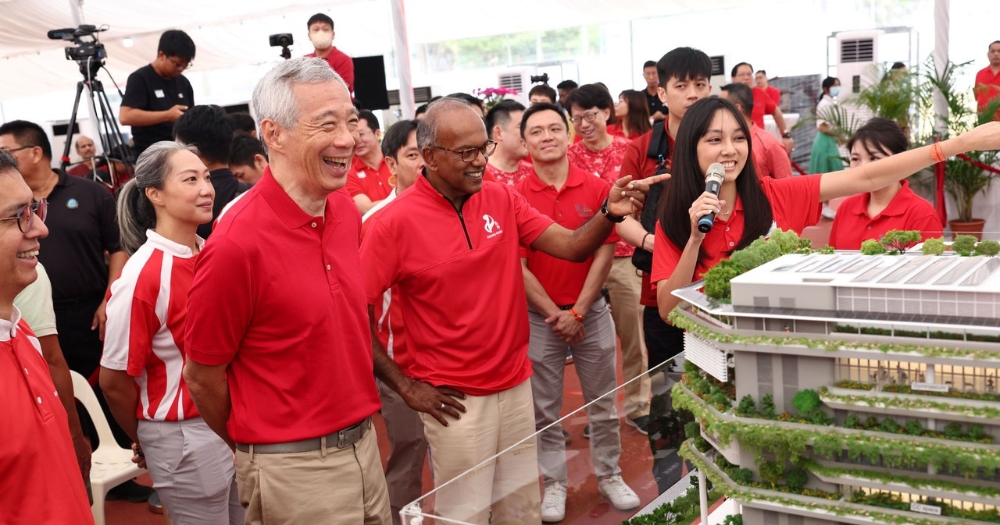Follow us on Telegram for the latest updates: https://t.me/mothershipsg
The Minister for Home Affairs and Law, K Shanmugam, said that while "we cannot deny that there is casual racism" in Singapore — and have some prejudice like in any society — he assured Singapore would "work hard" to deal with it.
"We are still a work in progress. But we are doing something about it," Shanmugam emphasised.
S'pore treats races equally but accepts races are different
Shanmugam was delivering his speech at the Institute of Policy Studies (IPS) 35th anniversary conference held at the Sands Expo and Convention Centre on Jun. 12, 2023, where he talked about the importance of racial pluralism in Singapore.
He highlighted that Singapore, since its beginnings, firmly held to the principle that all races should be treated equally.
But over the years, he explained that while Singapore accepted differences between races and religions, Singapore has also built a national identity through our laws and policies.
Policies worked but not without shortcomings
Shanmugam raised the example of the Ethnic Integration Policy (EIP).
The government introduced EIP in 1989 to ensure a mix of different races in each HDB estate after it noticed ethnic enclaves emerging across Singapore.
"If we did not do that, ethnic enclaves would have started to form in Singapore," Shanmugam said.
He said the EIP has worked so far, adding that racial concentrations in HDB would have surpassed the threshold limits, and there would have been more enclaves that are more pronounced if not for the EIP — where in 2022, nearly a third of all HDB blocks, and one in 10 HDB neighbourhoods, have reached their EIP limits.
That said, Shanmugam acknowledged that the EIP is not without its shortcomings, particularly when reselling flats as a minority.
In such scenarios, minority homeowners can only sell to their own race if the EIP limit has been reached.
This might result in them taking longer to sell or them facing pressure to lower the asking price due to the smaller demand pool.
Flexibility with policy
However, Shanmugam pointed out that this issue affects only 1.5 per cent of all resale applications involved with EIP appeals.
He said HDB exercised flexibility on a case-by-case basis in such instances and 31 per cent of EIP-related appeals were successful in 2022.
This includes giving households more time to sell, buying back the units directly, or waiving EIP limits in exceptional cases.
He said that this will be Singapore's approach.
"So our approach is: rather than do away with the entire policy, which keeps Singapore cohesive – we exercise flexibility in a targeted way, to deal with the effects directly, for the small number who are affected."
No society free from racism
Shanmugam pointed out that no society can say that it is free from racism.
However, he does not believe that ignoring race will solve the problems.
He explained that the government will take a race-sensitive approach by ensuring racial minorities are not disadvantaged.
For example, the government have put laws in place against hate speech, racially incendiary comments, and inciting violence against other groups.
He said that the MHA will also be introducing the Maintenance of Racial Harmony Act to better protect racial harmony, and to signal the importance of racial harmony in Singapore.
Shanmugam reiterated that Singapore should take a race-sensitive approach by being aware of differences, acknowledging them head-on, and then proactively dealing with them – rather than papering over them.
"And our starting point has to be to accept that racism is innate in human beings, and racism, therefore, is present in Singapore – like in any society," Shanmugam said.
"But we need to work hard, to make sure that it is not institutionalised."
Top image from K Shanmugam/Facebook
If you like what you read, follow us on Facebook, Instagram, Twitter and Telegram to get the latest updates.

